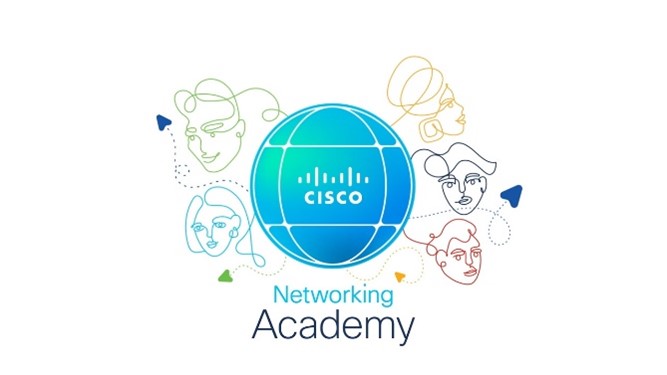Short course overview
CCNA is an entry-level networking certification that can prepare you for IT networking roles. The certification is issued by networking hardware corporation Cisco Systems through their Cisco Networking Academies. The CCNA is designed to validate fundamental networking concepts often requested in networking roles in IT positions. The CCNA exam tests a network professional’s knowledge and skills to install, configure, and troubleshoot networks.


Course Dates / Timings
- Start Date: April 12, 2025
- End Date: May 04, 2025
- Time: 6 PM to 9 PM
- Sessions: Saturday and Sunday
- Session Duration: 3 hours
- Total Duration: 24 hours
- Location: Hub Lab 117
Course Fee
- Course Fee: AED 2,800.00
- CUD Community Benefits: 30% discount for CUD Students, Faculty and Alumni (AED 1,960)
- Payment Method: Online
Topics Covered
Build the skills you need for associate-level job roles like Network Administrator, System Administrator, or Network Engineer in this three-course series. You will also get ready to take the Cisco Certified Network Associate (CCNA) certification exam, an industry-recognized credential that validates your expertise and opens doors to exciting professional opportunities.
The curriculum is divided into three courses:
- Introduction to Networks (ITN)
- Switching, Routing, and Wireless Essentials (SRWE)
- Enterprise Networking, Security and Automation (ENSA)
Course Objectives
- The Cisco Networking Academy® CCNA curriculum is designed for students who seek entry-level ICT jobs or plan to pursue more specialized ICT skills.
- CCNA provides comprehensive coverage of networking topics, from fundamentals to advanced applications and services, with opportunities for hands-on practical experience and career skills development.
- Students will obtain a Certificate after successful completion of each level of CCNA so at the end of the course students will receive three certificates representing the three CCNA levels.
- By the end of the CCNA course series, students gain practical, hands-on experience preparing them for the CCNA certification exam and career-ready skills for associate-level roles in the Information & Communication Technologies (ICT) industry.
Course Learning Outcomes
- CCNA 1 – Introduction to Networks (ITN):
The first course in the CCNA curriculum introduces the architectures, models, protocols, and networking elements that connect users, devices, applications and data through the Internet and across modern computer networks – including IP addressing and Ethernet fundamentals. By the end of the course, students can build simple local area networks (LAN) that integrate IP addressing schemes, foundational network security, and perform basic configurations for routers and switches. - CCNA 2 – Switching, Routing, and Wireless Essentials (SRWE):
The second course in the CCNA curriculum focuses on switching technologies and router operations that support small-to-medium business networks and includes wireless local area networks (WLAN) and security concepts. Students learn key switching and routing concepts. They can perform basic network configuration and troubleshooting, identify and mitigate LAN security threats, and configure and secure a basic WLAN. - CCNA 3 – Enterprise Networking, Security, and Automation:
The third CCNA course describes the architectures and considerations related to designing, securing, operating, and troubleshooting enterprise networks – including wide area network (WAN) technologies & quality of service (QoS) mechanisms for secure remote access, along with software-defined networking, virtualization, & automation concepts supporting network digitization. Students gain skills to configure and troubleshoot enterprise networks and learn to identify and protect against cybersecurity threats. They are introduced to network management tools and learn key concepts of software-defined networking, including controller-based architectures and how application programming interfaces (APIs) enable network automation.
Course Assessment
- CCNA 1 – Introduction to Networks (ITN): 100%
- CCNA 2 – Switching, Routing, and Wireless Essentials (SRWE): 100%
- CCNA 3 – Enterprise Networking, Security and Automation (ENSA): 100%
Course is designed for
The Cisco CCNA® curriculum is designed for Cisco Networking Academy® students who seek entry-level jobs in the ICT industry or hope to fulfil prerequisites to pursue more specialized ICT skills. CCNA course provides an integrated and comprehensive coverage of networking topics, from fundamentals to advanced applications and services, while providing opportunities for hands-on practical experience and career skills development.
The curriculum is appropriate for students at many education levels and types of institutions, including high schools, secondary schools, universities, colleges, career and technical schools, and community centers.
Secure Your Spot
Limited seats available! Register & Pay Here
